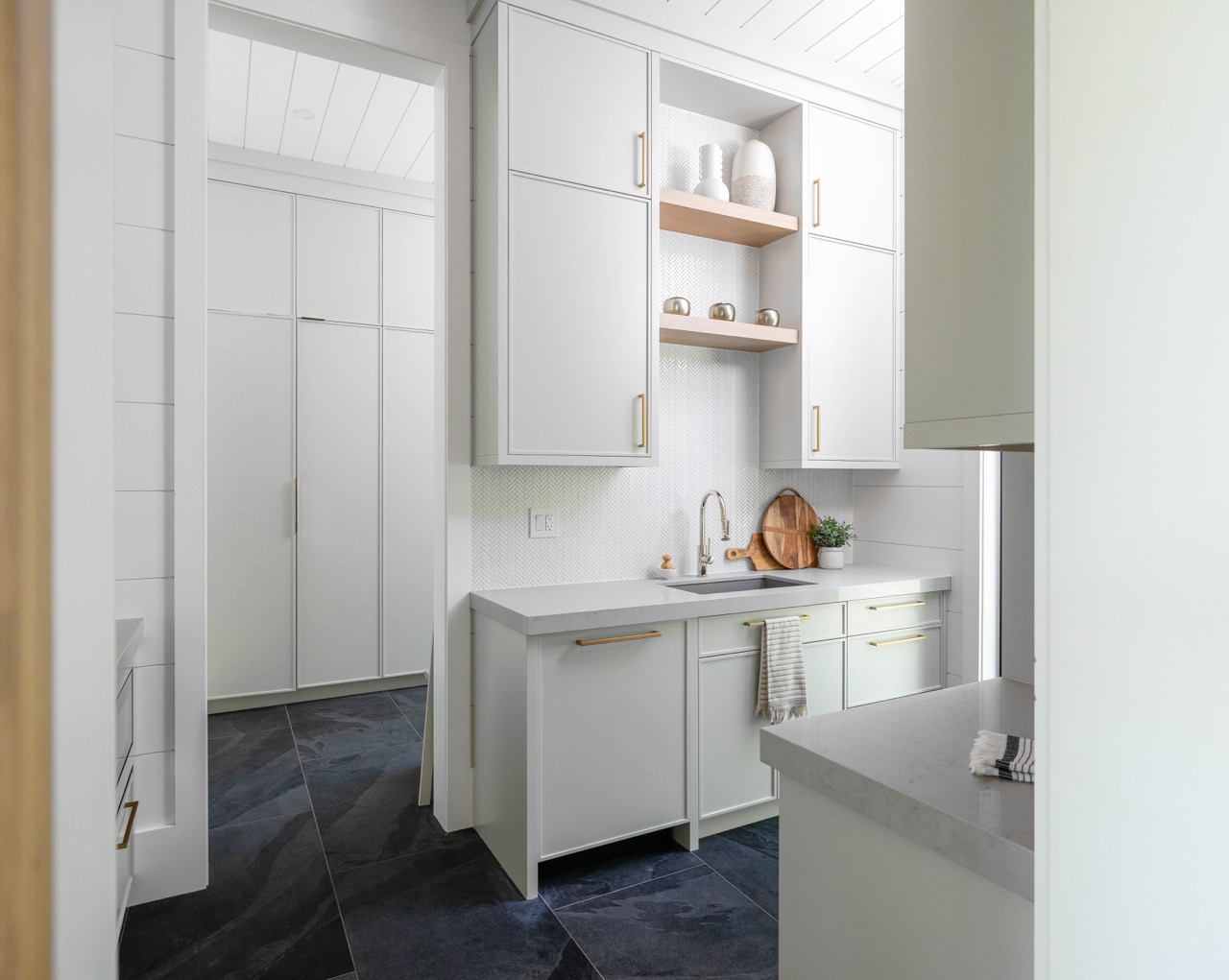By Martha Uniacke Breen
The old-fashioned butler’s pantry has come back into vogue in modern home construction. And for today’s cottages, it’s a particularly useful supplementary space in your home.
Unless you’re a royal or very well-heeled, being waited upon by a large household staff is mostly a thing of the past. But a butler’s pantry can be a useful substitute.
A butler’s pantry, also known by the even more quaint name of scullery, is a secondary storage and prep area, usually located just off the kitchen. According to Brown’s Appliances owner Jennifer Veitch, it’s generally more modest in design than the main kitchen. But in its own way, the butler’s pantry is the kitchen’s hardest-working assistant.
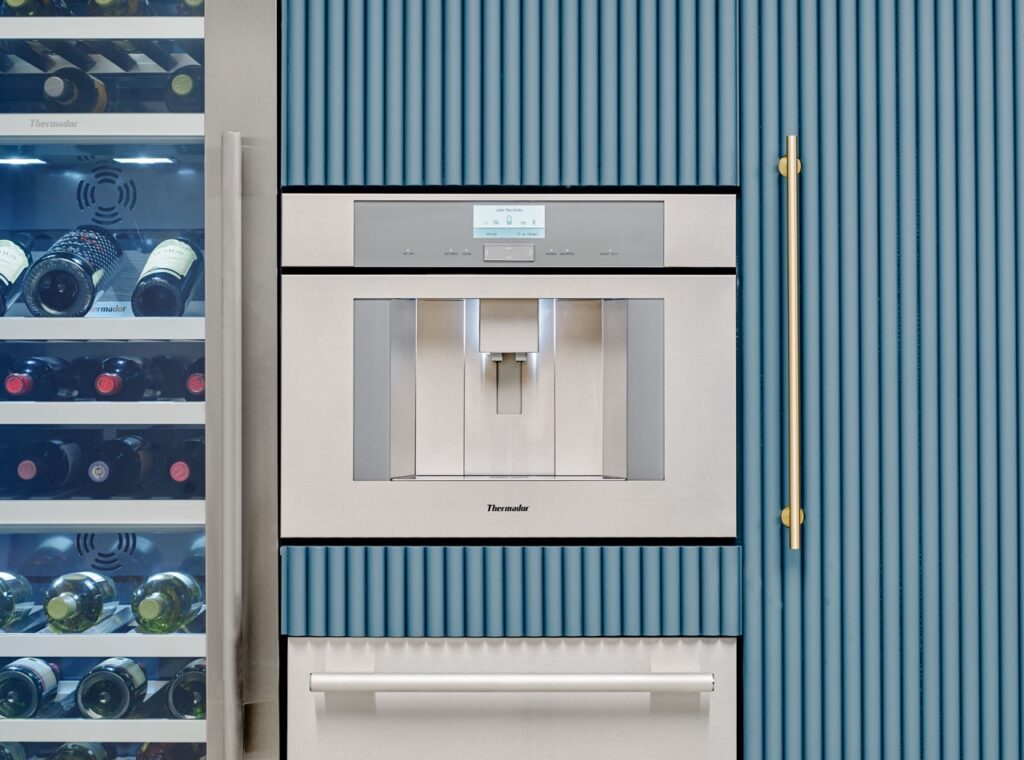
Butler’s pantry: a friend of the open-concept
“A lot of modern-day cottages are open-concept, so a butler’s pantry is great place to keep clutter out of sight,” observes Veitch. “It’s easy to take dishes out to the butler’s pantry as they are used, so they can be off the table until you’ve finished dinner.”
She adds that it’s the perfect space to store large quantities of food and supplies as well. “Not everyone lives on the mainland up here, or can go into town regularly to buy food. And often guests will bring up food when they visit. So it’s also a convenient spot to keep extra stocks – and it’s out of sight and out of the way.”
The butler’s pantry can double as an auxiliary prep counter and back-up appliance centre. For some cottagers, it can come in handy as a servery or staging area when entertaining. For caterers, it’s the ideal spot to place trays of food. They can return used dishes or even do supplementary prep work, out of sight of guests and without tying up the kitchen proper.
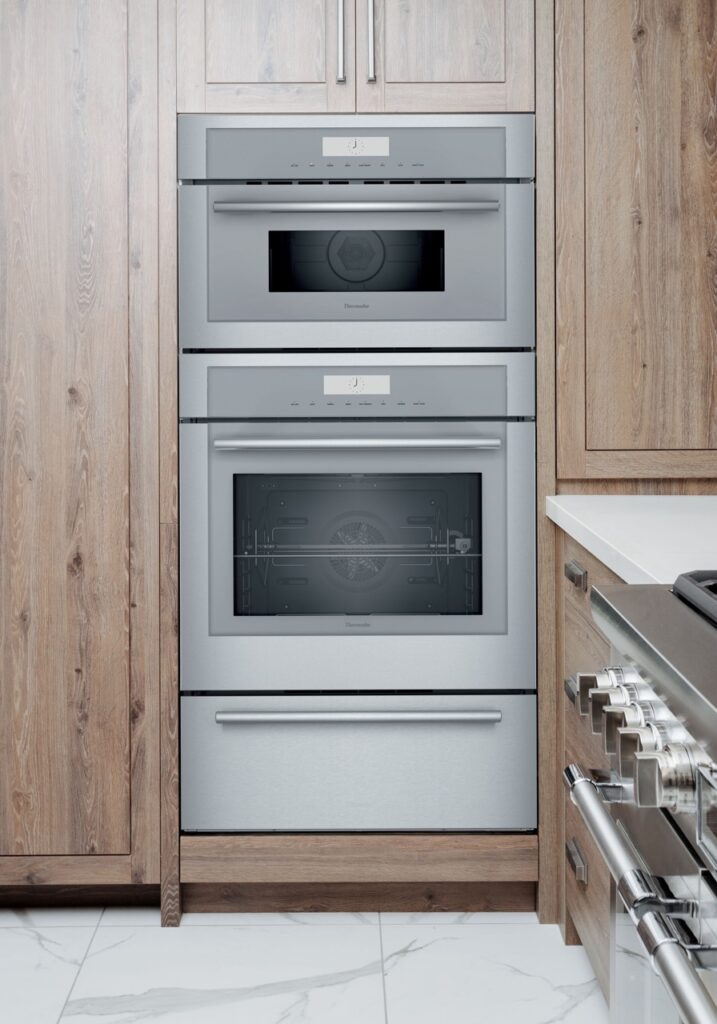
Butler’s pantry mix and match
What should a well-dressed butler’s pantry contain? A sink is a very useful feature if the room is large enough. Since it’s great for cleanup and rinsing, it makes a convenient repository for dirty dishes brought in from the dining room. And both open and closed storage have their place here, Veitch notes. “Open storage is great for servingware, with closed storage for the things you don’t want to see!”
Smaller-scale appliances, particularly those from one of Veitch’s favourite brands, Thermador, are perfectly suited for the modern butler’s pantry. These scaled-down units pack all of the quality and efficiency of their full-sized equivalents. All this in a more manageable, energy-efficient package.
“Bar, wine and beverage fridges are all excellent for the pantry,” she says. “A lot of today’s units will even have accommodation for food, which requires slightly colder temperatures than most beverages. Thermador’s models feature four different cooling modes: Refrigeration (37 degrees), which is cool enough for a tray of hors d’oeuvres, Pantry (53 degrees), and Bar setting (34 degrees), as well as a quick chill button.” She confides that Thermador’s beverage fridges actually outsell wine fridges at Brown’s these days, thanks to their versatility. You can store everything from beer to pop and water in them, as well as wine.
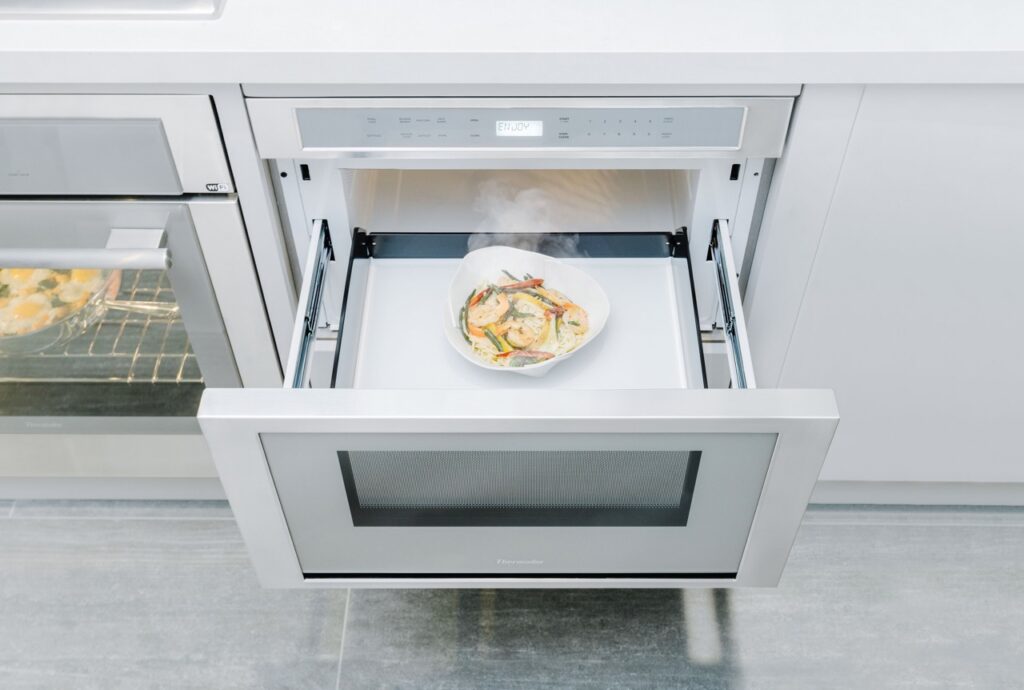
Fridge, oven, and even dishwasher
Refrigerator drawers are another great choice for butler’s pantries, says Veitch. “There’s never enough room in the main fridge. Especially after a trip to the farmer’s market or grocery store, or when guests arrive laden with food.” The drawers are also great for keeping refrigerated snacks or extra condiments handy. You can reduce the need to open and shut the main fridge door repeatedly (an energy waster on a hot summer day).
“I really like a microwave and wall oven combo. Thermador’s microwave/speed oven combo gives you the option of two kinds of cooking. They’re great for caterers, too,” she adds. Some people don’t use their microwave oven very often and don’t want it taking up valuable real estate in the main kitchen, she adds. So, the butler’s pantry is a natural place for it.
“Small supplemental ovens, like the combo speed oven, are also a great way to save energy and time,” she continues. “When it’s just the two of you up during the week, and you don’t want to heat up the main oven,” which for a lot of people is a 36” burner type and can use up a lot of energy. “But you can easily cook dinner for two people in the smaller oven.”
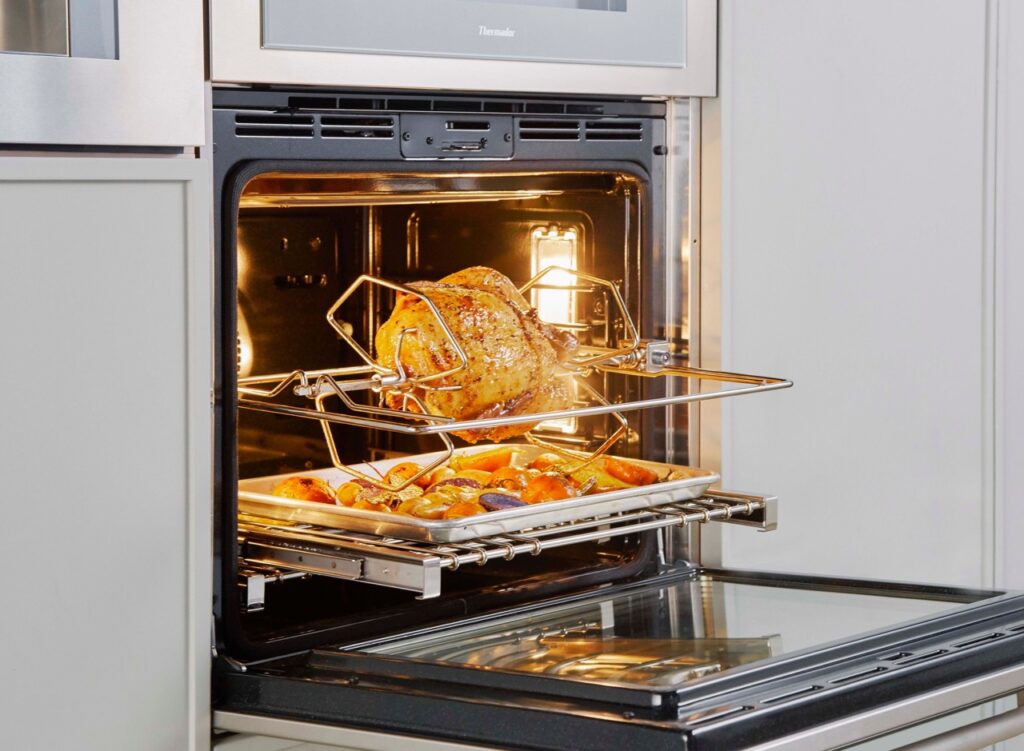
Suited for every size
She observes that these nifty little powerhouses are also great for boathouses and bunkies. Unlike full-size appliances, they require standard 120-amp service. Check local township bylaws to determine what is allowed in your area.
As a finishing touch, says Veitch, “I’d add a dishwasher next to the sink. Whether full-size or compact, it’s great for washing overflow dishes and glassware during parties. It’s also a great way to keep your good quality glassware separate from regular dinner dishes. When you wash them, food particles can be harmful to fine glassware.”
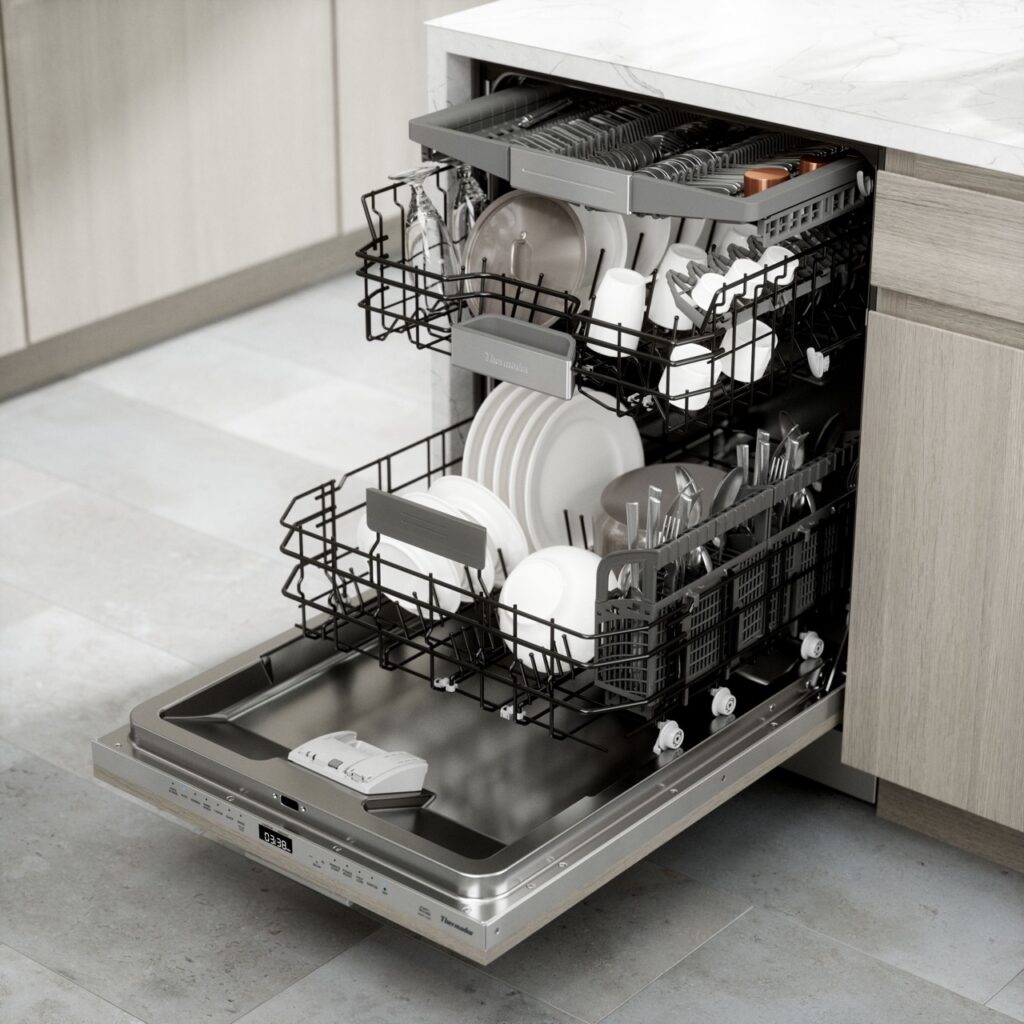
A handmaiden to the main kitchen
From a design standpoint, you can finish your butler’s pantry as an exact continuation of the kitchen, but it isn’t essential. When you come right down to it, the butler’s pantry is basically a handmaiden to the main kitchen, so there’s no need to put on airs and get all fancy about it. As Veitch puts it, “The design can be strictly utilitarian, more formal, a continuation of the kitchen design – or anywhere in between.”
However, she suggests one attractive solution for a finished look that’s easy to achieve: Thermador, and in fact most of the modern quality brands, offer both stainless steel and optional panel-ready fronts that allow you to create a co-ordinated, seamless look.
If you’ve got the room – or can carve out some space for a supplementary serving and storage area between the kitchen and more public areas of your home or cottage – a butler’s pantry is a surprisingly useful addition to your home. Think of it as the architectural equivalent of an extra Mr. Carson, Jeeves or Hudson: having one will most definitely make your life a little easier.


